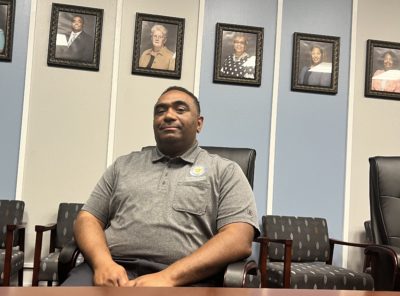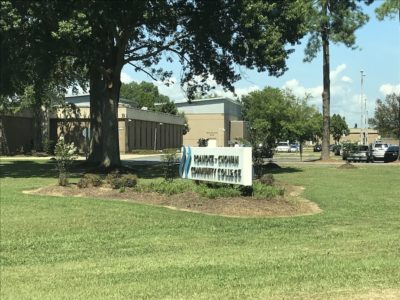
|
|
You’ll know you are drawing close to Roanoke-Chowan Community College (R-CCC) when you pull onto Community College Road in Ahoskie. As I made that turn and arrived on campus on June 17, college president Dr. Murray Williams walked out of an administrative meeting to greet me with a big smile.
R-CCC is the 58th community college I’ve visited. Williams teased me for saving Roanoke-Chowan for last, but she and her leadership team provided a warm welcome.

Williams assumed the presidency on May 1, 2021, while the college faced several significant challenges. Some were common to all postsecondary institutions, such as COVID-19, in addition to the general trend of declining enrollment among community colleges. But R-CCC had also been placed on probation by the Southern Association of Colleges and Schools Commission on Colleges (SACSCOC) and received an unfavorable audit from the State Auditor’s Office.
These challenges led the State Board of Community Colleges to ask interim president Deborah Lamm whether R-CCC would be a “viable college” moving forward at the September 2020 Board meeting.
When Williams took the helm, she was determined to show that the institution indeed had a future. She was also quick to credit the college’s local board of trustees during our recent conversation. The board recognized and addressed the college’s long-standing challenges, she said, pointing out that the trustees made the case to the State Board, executed a well-organized search, and advocated for the college.
“I used to tell (former) system president Thomas Stith that we were the No. 1 community college in the state,” Williams said. “I told him that we may not look like it yet, but we are going to get there. And today I can safely say that we’ve come a long way from where we were.”
The college had to move quickly, said Williams and Dr. Tonya Oliver, who now serves as the vice president of instruction and student services. Oliver began her career at R-CCC as director of TRIO services during the college’s turbulent years, but she remained focused on serving the students as well as she could.
“The people of Roanoke-Chowan, specifically the students, have kept me here,” Oliver said. “Our biggest day every year is graduation day. When we see people who walked in the door then walk across the stage to graduate, or receive a credential, that is why we do what we do.”
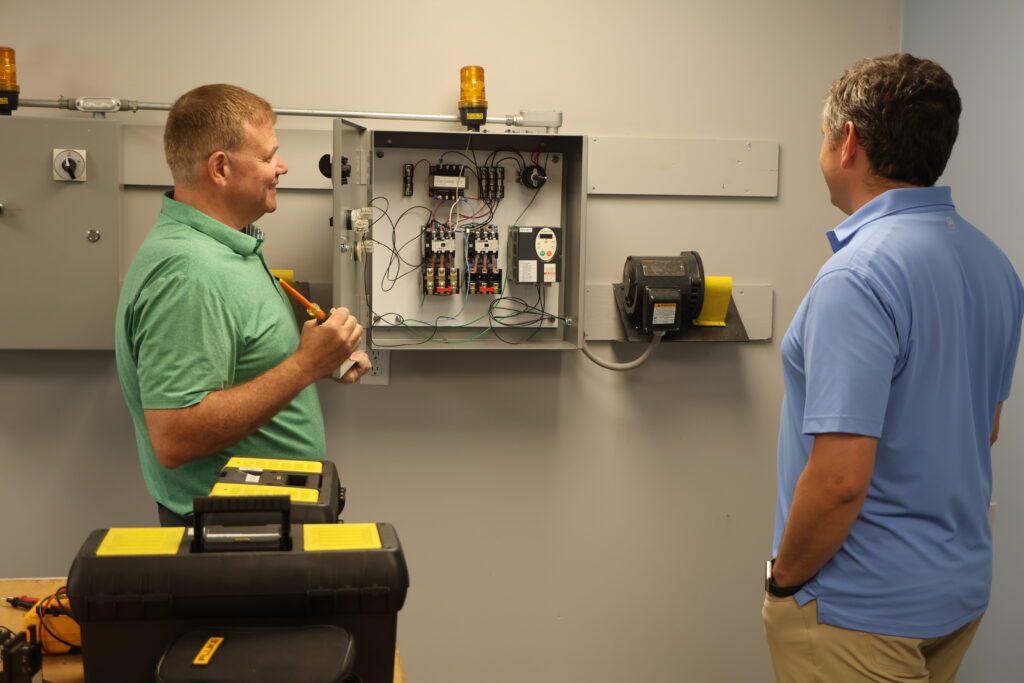
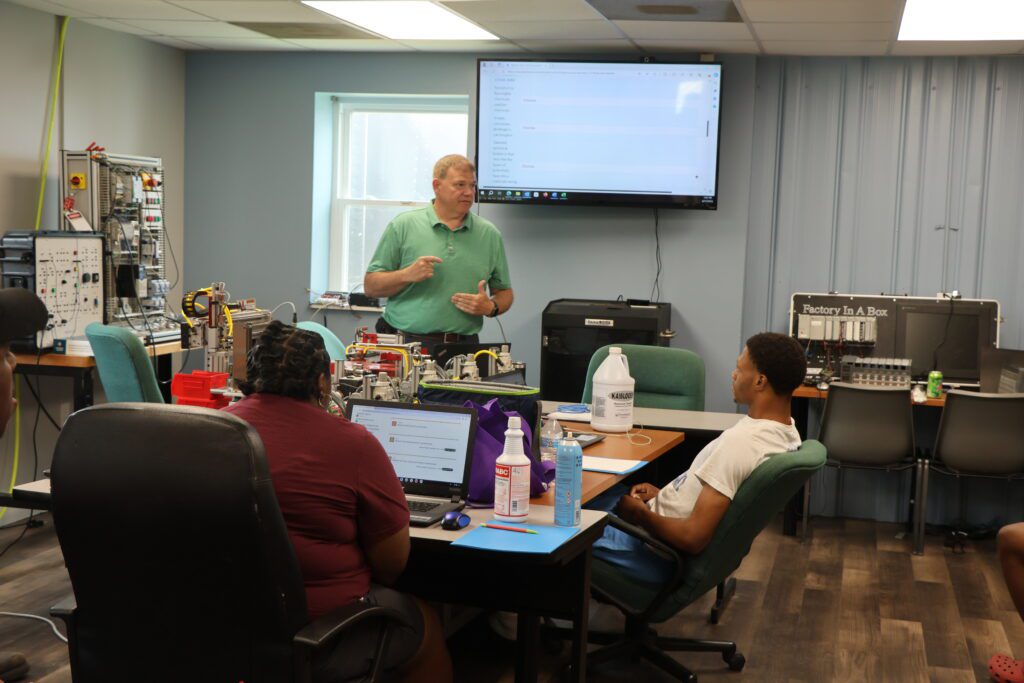

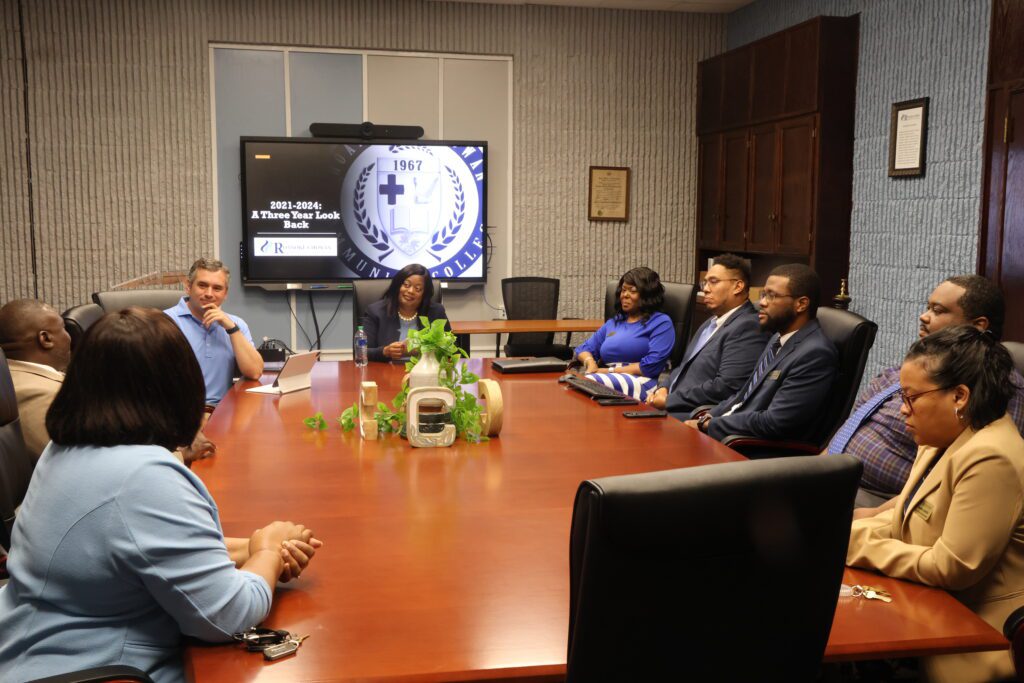
Oliver was among the leaders Williams enlisted to begin the most urgent work. The college needed a new strategic plan, a compliance report, and a Quality Enhancement Plan (QEP) for SACSCOC, among other pressing matters. The QEP was in draft form, Williams said, but far from complete. The strategic plan and compliance report were nonexistent.
Williams and her team quickly delivered all of these pieces while also turning their attention to bolstering enrollment and building out a leadership team.
“We had a revolving door in leadership,” Williams said, “and we knew that needed to change.”
An array of leaders joined R-CCC, including Miriam Caslin as vice president of administrative and fiscal services (CFO), Clarence Hall as director of IT and chief information officer, Dwayne Ponton as dean of business technologies and public service, Michael Jefferson as dean of college transfer and health sciences, and Kimberly Lassiter as executive director of human resources and Title IX coordinator.
The leadership team focused on recruiting program leaders and faculty members with a connection to both the region and the mission. Ponton pointed out that his early childhood instructor used to own his own area business, which will assist students as they graduate and seek jobs. They found similar candidates in hard-to-hire positions such as nursing, welding, and mechatronics.
Tim Lassiter serves as director of facilities and security. Lassiter joked that after a 26-year career in law enforcement, his first day on R-CCC’s campus was the first day he turned a wrench. Today, he manages facilities and security across the campus. He credits the opportunity to both grow on campus and enjoy his work as primary drivers.
Michael Jefferson echoed Lassiter when he said, “I feel wanted, appreciated, and part of the family.”
Kimberly Lassiter (no relation to Tim) had a 32-year career in human resources outside of R-CCC before returning to the college that began her academic journey.
“It is a full circle moment to come back and give back to the school that gave me a start,” Lassiter said. “I wanted to give back to a place that had given so much to me.”
“This has been a team effort among the board, R-CCC administration, faculty, staff, students, and the community,” Williams said. “People here care about R-CCC and the community. We are working tirelessly to fill positions that were once hard to fill. I’m proud of the fact that the college is stabilized and people are interested in working and attending college in our local community.”
As the leadership and faculty positions were filled, the college also launched a true marketing effort for the first time. Williams pointed out that the college had minimal presence on Facebook, LinkedIn, Instagram, and other platforms at the time. They built a marketing team with multiple staff members to execute a more aggressive strategy.
“We have to tell our story or no one else will,” Williams said. “We couldn’t just sit back and wait for these students to come to the college. We had to go to them.”
The enrollment data Williams shared with me as part of her presentation tell some of their story to date, including an overall FTE enrollment increase of 53.37% from 510 to 782.2 FTE.
The college also has secured significant grants and state-level investment, including:
- $15 million non-recurring funding for the construction of a new health sciences building;
- $282,415 from Hampton Roads Workforce Council to expand the “Weld to Work” certification course and provide building improvements to the Universal Technical Training Center;
- Approval for $470,000 in SEID grant funds for welding program support, bringing the total to $752,415 in support of the welding program;
- $778,200 in funding from the Golden LEAF Foundation to renovate the Universal Technical Training Center in preparation for the mechatronics program launch and to establish community education centers in Lewiston Woodville in Bertie County and Rich Square and Creeksville in Northampton County; and
- A $500,000 Expanding Community College Economic Impact Grant to start a licensed practical nursing (LPN) program.
The college also received a clean audit from the Office of the State Auditor in 2021.
And those areas of SACSCOC concern? They were reaffirmed without recommendations in 2023.
The enthusiasm from Williams and her team was clear throughout my visit.
“This isn’t a job for me. This is a calling,” Williams said. “I love this institution, these people, the students, and this community. We are sitting on a golden opportunity to show both North Carolina and this nation what a small rural institution can be.”
Recommended reading
